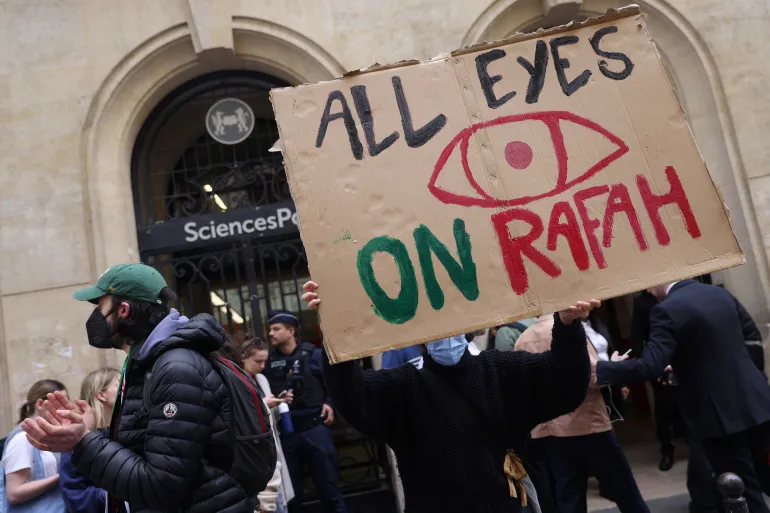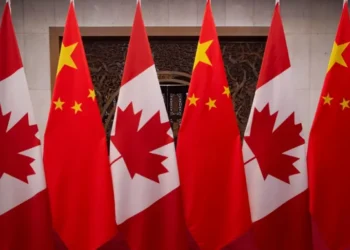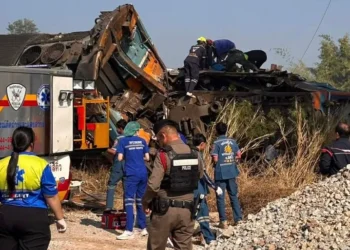As tensions persist between Israel and Hamas, negotiations in Cairo have taken a heightened significance, particularly regarding the fate of Israeli captives held in Gaza.
Attempts to revive hope around securing a ceasefire in Gaza are being made as delegations from Israel, Hamas, the US, Qatar and Egypt meet in Cairo to resume talks.
CIA Director, William Burns is set to meet Israeli Prime Minister, Benjamin Netanyahu as Israel has continued to bomb Rafah and the rest of the Gaza Strip as Palestinians remain trapped following the seizure of the vital Rafah crossing on the border with Egypt.
An anonymous Hamas official told a news agency that the talks in Cairo may be Israel’s “last chance to recover the Israeli captives alive.”
Initially, there seemed to be a glimmer of hope with Hamas’ acceptance of a three-phase ceasefire proposal mediated by Egypt and Qatar.
This proposal not only aimed to halt Israel’s military operations in Gaza but also included provisions for the release of Israeli captives and Palestinian prisoners held in Israeli jails.
However, Israel’s rejection of the proposal, citing its failure to meet “basic demands,” has reignited tensions and dampened hopes for swift progress.
Despite expressing readiness for further negotiations in Cairo, Israel’s military actions in southern Gaza, particularly the seizure of the vital Rafah crossing, signal a hardening of its stance.
Prime Minister Netanyahu’s dismissal of Hamas’ proposal as inadequate and an attempt to undermine Israel’s military efforts underscores the deep-rooted distrust between the two sides.
Hamas Spokesperson, Osama Hamdan said that the “ball is now in Netanyahu’s court” and called on the US to pressure Israel to make a deal.
It is believed that the initial Israeli invasion of the eastern area of Rafah signals the start of a larger military operation.
It’s a matter of time and all of Rafah will be invaded. There’s a pervasive fear that some areas will be suddenly bombed without prior evacuation warnings.
As expected, the United States played down the deadly Israeli assault on Rafah, saying the offensive appears to be “limited” despite concerns over the fate of the more than 1.5 million Palestinians sheltering in the southern Gaza city.
Matthew Miller, Spokesperson for the US Department of State acknowledged that the attack on the crossing “does look like the prelude” to a larger offensive.
Israel’s military onslaught against Rafah, where “more than 1.5 million civilians are crowded into a narrow sliver of land”, risks turning the former refuge for civilians “into a graveyard”, Avril Benoit, the Executive Director of Doctors Without Borders, known by its French initials, MSF, said.
He added that a military escalation in Rafah “would crush an already fragile humanitarian response at a time when health and humanitarian needs are soaring.”
Sound Of Student Protests Echoes Worldwide

Student protests demanding that universities sever ties with Israel over the Gaza war have spread across Europe, sparking clashes and arrests as new demonstrations broke out in the Netherlands, Germany, France, Switzerland and Austria.
Students at various European universities, inspired by ongoing demonstrations at US campuses, have been occupying halls and facilities, demanding an end to partnerships with Israeli institutions because of Israel’s assault on Gaza.
Dutch police said that169 people had been arrested on Monday evening when they broke up an encampment at the University of Amsterdam.
In Switzerland, protests on Tuesday spread to three universities in Lausanne Geneva and Zurich.
The University of Lausanne said in a statement that it “considers that there is no reason to cease these relations” with Israeli universities, as protesters demand.
In Austria, dozens of protesters have been camped on the campus of Vienna University.
READ ALSO: Israeli Attack On Rafah Crossing, A Ceasefire Sabotage























